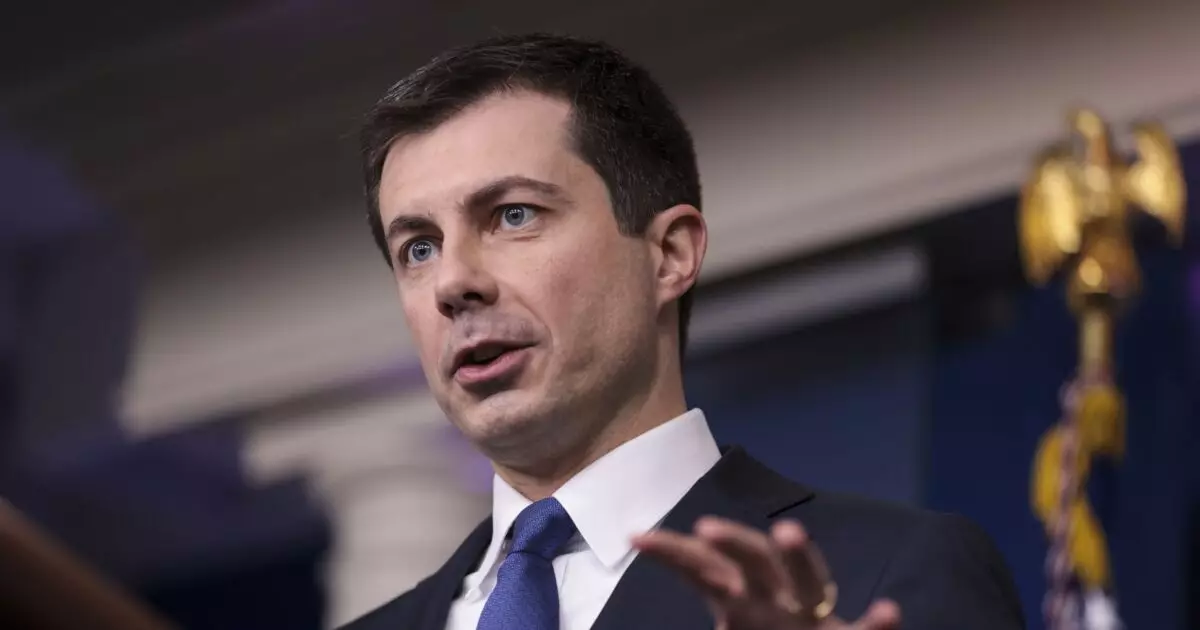As the Biden administration commemorates the third anniversary of the historic Infrastructure Investment and Jobs Act (IIJA), the announcement of an additional $3.4 billion in grants highlights both the achievements and ongoing challenges in U.S. infrastructure development. This legislative milestone, aiming to transform the country’s infrastructure with an overall budget of $1.2 trillion, has funded a substantial $570 billion across 66,000 projects nationwide thus far. Despite these efforts, challenges loom ahead, especially with upcoming political shifts.
Transportation Secretary Pete Buttigieg emphasized in a recent press conference the importance of utilizing the allocated funds effectively, given the limited time left in the current administration. His assertion, “There’s only one administration at a time,” underscores a crucial point about the continuity of infrastructure programs that must endure political transitions. The announcement not only outlines the current funding but illustrates the necessity for consistent infrastructure policies irrespective of party lines.
However, the instability surrounding the persistent commitment to these programs, especially with incoming Republican leadership signaling possible reversals, raises concerns. For example, discussions regarding the $7.5 billion earmarked for electric vehicle charging initiatives could indicate a broader attempt to dismantle elements of the IIJA. While the structure of advance appropriations offers some protection against sudden cuts, the survival of these initiatives will depend heavily on future political will.
Despite potential political turbulence, the bipartisan support for the IIJA stands as a significant achievement. Leaders from both sides have united over the necessity of infrastructure improvements. Kentucky’s Governor Andy Beshear and Oklahoma City’s Mayor David Holt have championed the IIJA’s contributions, showcasing how collaborative efforts can transcend political affiliations.
One standout project is the $1.6 billion federal grant for the Brent-Spence Bridge replacement, which reflects the administration’s commitment to cross-party cooperation. This collaborative success suggests that infrastructure can serve as a unifying theme amid a highly polarized political landscape.
The latest infusion of $3.4 billion will primarily support three significant programs: the Federal-State Partnership for Intercity Passenger Rail, the Safe Streets and Roads for All Program, and the Port Infrastructure Development Program. With a specific allocation of $1.5 billion for rail projects in the Northeast Corridor and $1.2 billion designated to establish more sustainable building materials, the IIJA continues to prioritize modern and environmentally friendly infrastructure solutions.
However, the challenge lies in ensuring these funds are effectively output rather than merely politically symbolic. The imminent expiration of IIJA appropriations on September 30, 2026, serves as a reminder that continuous advocacy, coupled with strategic planning, is essential to sustain these initiatives and adapt to future needs.
As the Biden administration approaches the transition of power, it must focus on both maximizing current funding opportunities and laying the groundwork for future investments in infrastructure. The stakes are high, and with bipartisan backing evident in certain areas, there emerges a potential pathway for productive discourse. The resilience of infrastructure programs in facing political trials will test the commitment of both parties to prioritize the nation’s needs, ensuring that the gains achieved thus far are not allowed to unravel. The future of American infrastructure hinges upon unified action and sustained funding, underscoring the urgency of this undertaking as the nation moves forward.

